On 22 May we held one of our favourite events in the UK Data Service impact calendar – welcoming our new #DataImpactFellows. This year we have made eight awards and have expanded the scheme to welcome researchers from UK registered charities.
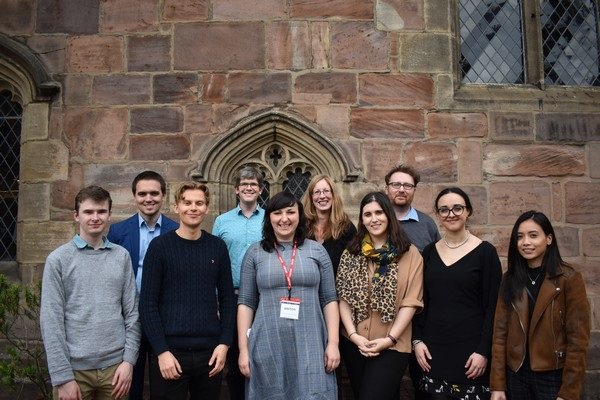
Our 2019 Data Impact Fellows are:
- Anne Alarilla – Data and Research Analyst in the Cancer Intelligence Team at Cancer Research UK
- Ben Brindle – PhD student as part of the South Coast DTP, at the University of Brighton
- Janet Bowstead – Postdoctoral Research Fellow at the Royal Holloway, University of London
- Stuart Campbell – Research Associate at University College London
- James Cockett – Research Economist at the Institute for Employment Studies
- David Kingman – Senior Researcher at the Intergenerational Foundation
- Christian Reynolds – Knowledge Exchange Research Fellow at the University of Sheffield, and Technical Specialist and Analyst for the Waste and Resources Action Programme (WRAP)
- Bozena Wielgosweska – Research Associate at the Centre for Longitudinal Studies
This is our third fellows scheme and we were joined by #DataImpactFellows from our first round in 2016:
- Sarah Knight – PhD student at the University of York
- Claudia Zucca – Research Assistant at the MRC/CSO Social & Public Health Sciences Unit, University of Glasgow
and from 2018:
- Esmeralda Bon – PhD student in the School of Politics and International Relations at the University of Nottingham
- Oliver Exton – PhD Candidate in Economics, and Faculty and College Teaching Fellow at the University of Cambridge
Chetham’s Library is the oldest public lending library in the English-spaking world – an apt setting to welcome our Fellows who are working with data from the UK Data Service, a partner in which; the UK Data Archive, turned 50 last year.
We met in the fifteenth century Baronial Hall to hear from the Fellows about their research and the impact they are developing, for them to find out more about how the UK Data Service supports research impact and about how the #DataImpactFellows scheme works.
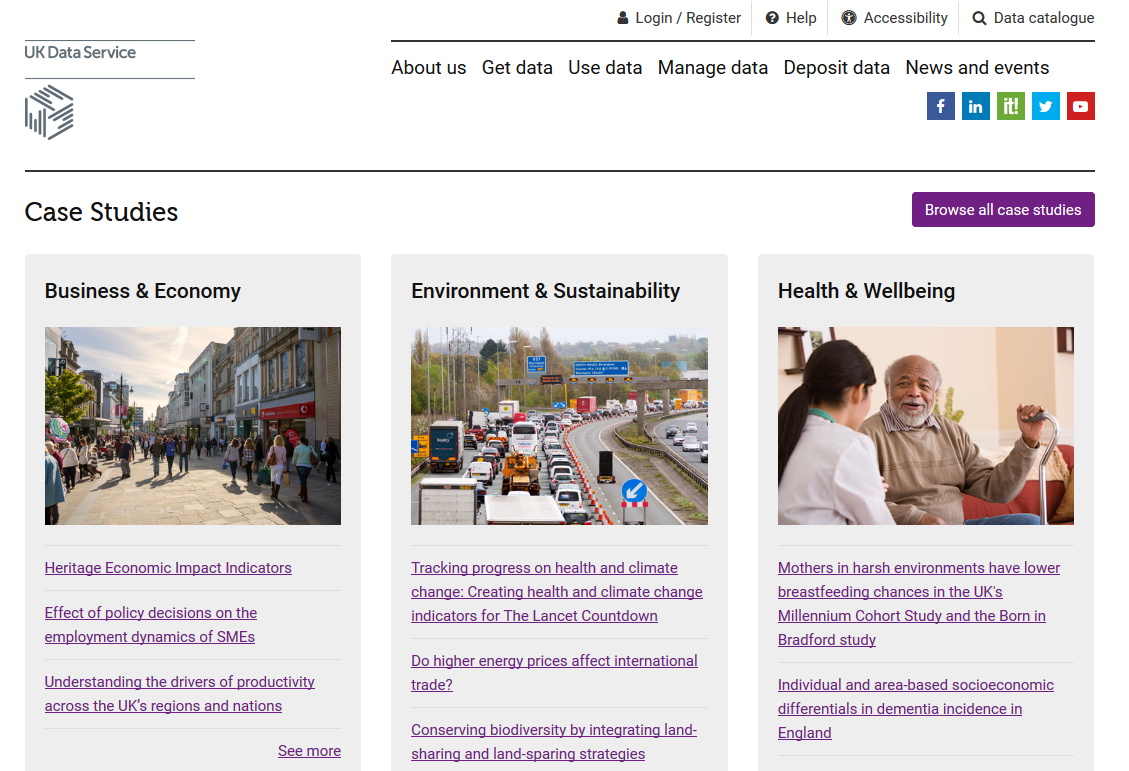
Given that our Fellows are, for the first time from a mix of university and UK registered charity research backgrounds, the first group activity was a chance to get to know more about each other by identifying some of the similarities and differences in doing research in the academic and UK registered charity sectors. We asked:
- What are the pressures and priorities and opportunities for developing impact in your role?
- What are the constraints within which you must operate?
- Can the university and UK registered charity early career experiences and ways of working offer opportunities to learn from each other?
- How?
Career similarities and differences?
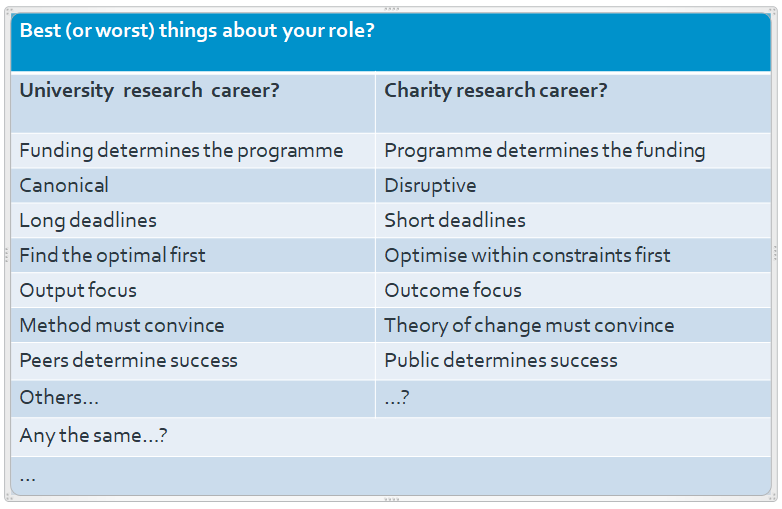
(With thanks to the LSE Impact Blog’s post by Rachel Glennerster for her approach, which we’ve gratefully been inspired by)
There was a great buzz of discussion and a discovery that while there were some differences, there were also many similarities.
Fellows observed that academic career paths are very clearly defined, with rigid steps to progression which is less the case in charity research. They noted that in academia there may often be a defined methodological emphasis – with much time taken in defining their approach to research projects. There was a recognition that in academia, the method determines the research pathway.
Fellows from charities recognised, conversely that they are very close to the societal challenges they focus on, with the sense of a very urgent need to solve them now above all, giving a different primary emphasis to their research. Both approaches were useful in helping them to innovate either through methodological innovation or through imperatives for social benefit in their charitable objectives.
Whilst the Fellows noted that everything they do aims to change the world for the better, in academic research, standing on the shoulders of academic giants, contextualising their approach and the need comprehensively to justify it using references can be daunting – and make it hard to make an original contribution to knowledge.
Fellows from charities noted that few of them have the equivalent level of access to academic resources to support them in their research. There was an overall feeling of disconnection between charities, academics and policy and we hope this years’ Fellows can go some way to changing that sense of disconnection.
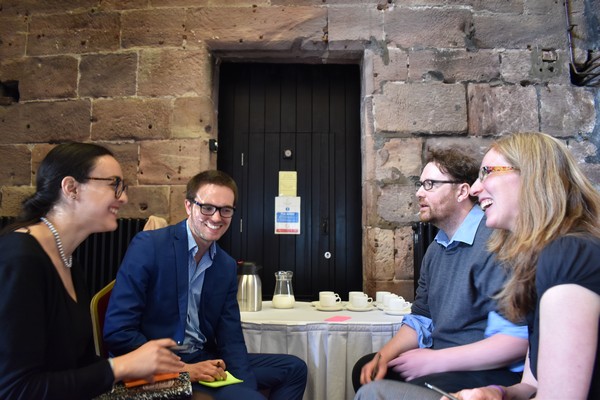
Passion and engagement
The group considered what was, for them, the most element of the ‘engagement wheel’, exploring the idea of keeping the audience (‘who’) and the reason for engaging (‘why’) at the very heart of engagement activities.
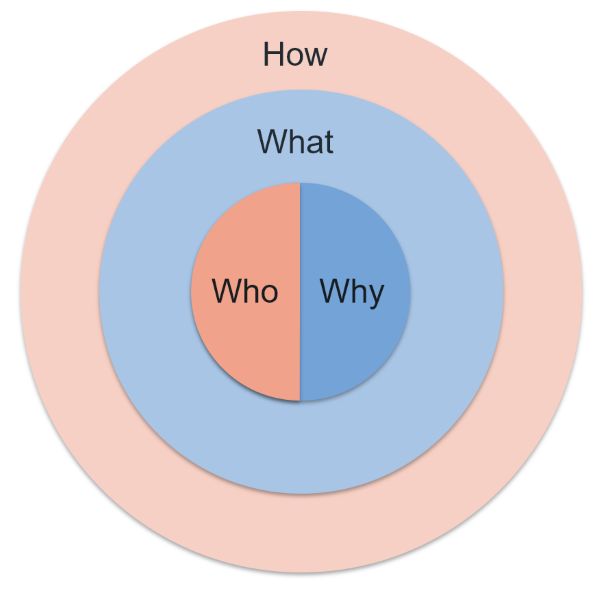
The Fellows then had an opportunity to share their passions in research and their approaches to engagement.
Sharing in pairs and feeding back to the whole group gave every Fellow a chance to gain a better understanding of each other, with a lot of common themes running through their different areas of work.
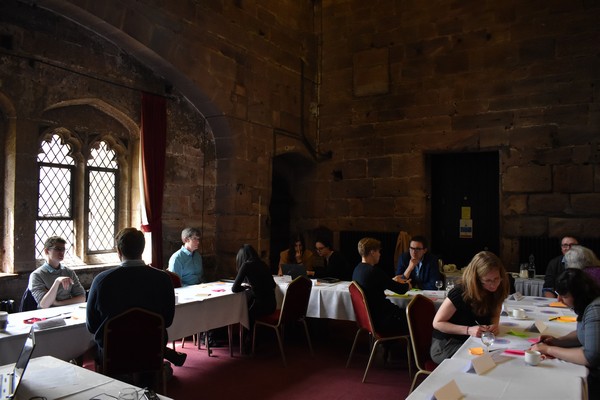
The library
After lunch and networking, the afternoon consisted of filming interviews with the Fellows with the wonderful Creative Grid (look out for a video coming soon like last year’s).
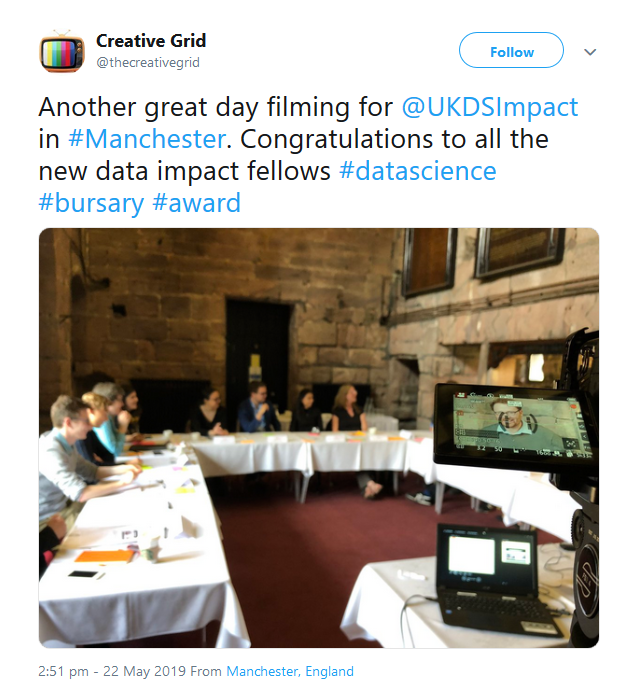
The day concluded with a tour of the library which was much appreciated by all.
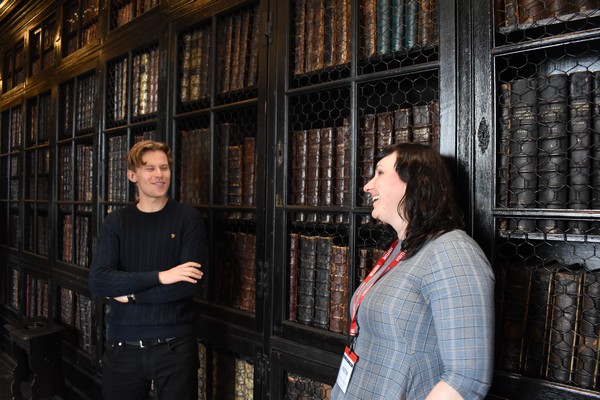
It was a fantastic day. We got to learn much more about the Data Impact Fellows and their research, passions and thoughts about where they will go next. We look forward to supporting them on their journey!

